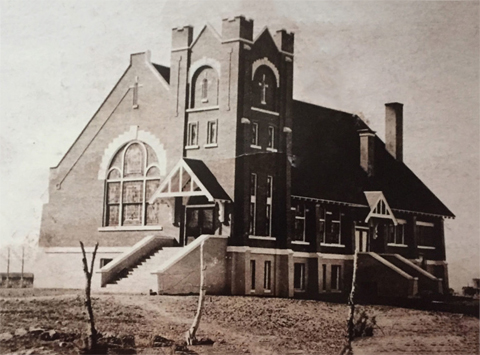By J.B. Clifford
While much is known about many of the early Malad settlers once they arrived in this valley, more often than not the events of their lives prior to arriving here may be shrouded in the shadows of history. A notable exception, however, is the account of Robert T. Bush, one of Malad’s prominent pioneers, who passed away 59 years ago this month.
Born in Portsmouth, Hampshire, England, April 29, 1836, Mr. Bush served in the British Naval Service and saw duty in India and in China on a British Man-O-War prior to coming to this country.
According to a written account of his life provided by his grandson, Albert B. Bush of Malad, Robert T. Bush became an accomplished traveler at a young age. Before he turned 10 years of age he had spent several years in Ireland and Wales, voyaging there with his mother and stepfather, who was in the British service. And by the time he was 11 years of age he was aboard a British battleship, bound for Bombay, India, again in the company of his stepfather.
The written account relates a story of an elaborate celebration on board the ship as it crossed the equator, with the young Robert Bush playing the part of Neptune’s son in full costumed festivities. The celebration also included the dunking of all those who were crossing the equator for the first time in a water-filled compartment of the ship. Those who were dunked were reportedly blindfolded and led to believe that they were being tossed overboard. Such initiation practices were reportedly traditional in the British Navy.
After 99 days at sea, land was sighted near Bombay, India, and the ship soon made a landing there. The young Bush toured the city and recounted seeing many “strange” sights and interesting people.
From Bombay the ship set sail for Singapore and later Hong Kong, where it remained for five months, before returning to Singapore. On this return trip Bush relates that one of the ship’s crew members fell overboard while painting the ship’s hull and was eaten by sharks.
Later in the sailing journey the youngster “came of age and was placed on the books as a member of the crew, drawing pay.” As he described it, “The crew and all on board were assembled on deck and I was presented to them. I was required to promise to fight for the queen and the country and was assigned to be a servant to the chaplain.”
On the return journey to England the ship stopped in Burma where Bush recalled seeing “strange people who worshiped idols.”
On arrival in England, Bush was assigned to another British battleship, serving at that post until he left the service.
In 1854 he left England for America. Sailing to New Orleans, he then traveled by steamer up the Mississippi to St. Louis, later going to Kansas City in preparation for an overland journey to Salt Lake City.
Bush lived in Farmington, Willard, and Logan before coming to Malad in the Spring of 1868 and becoming prominent in local affairs.
He is one of many who formed a part of Malad’s pioneer heritage.
The Robert T. Bush home on Malad’s North Main Street picture of home at top of page
Robert T. Bush oval picture of Robert T. Bush in 3rd column
